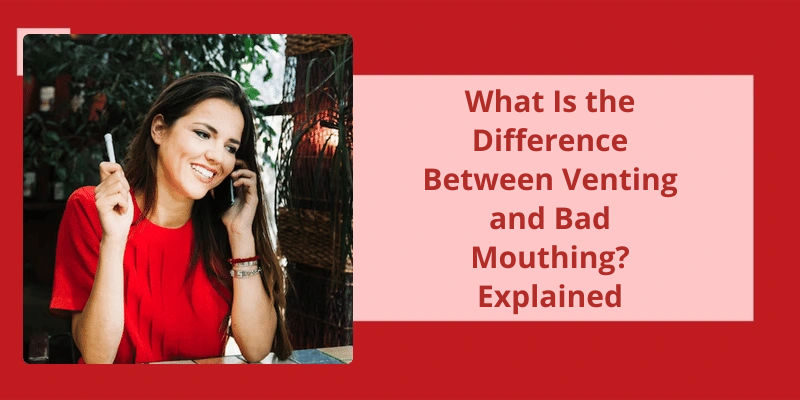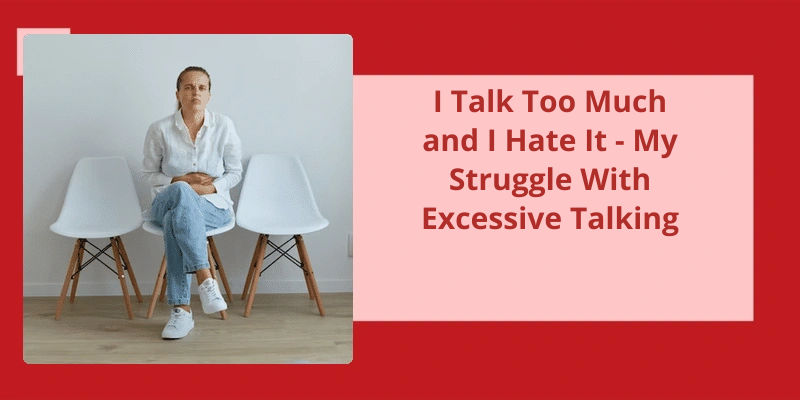It's a small but meaningful gesture that speaks volumes about the speaker's character. It's an act of kindness that can brighten someone's day and lift their spirits. It signifies that he values the relationship, no matter how big or small, and wants to maintain it. For some, the statement may seem trivial, but for others, it can be a powerful reminder that someone cares. It's an open-ended greeting that invites the other person to respond and share their current state of being, creating an opportunity for connection and conversation. Overall, when a guy says, "I hope you’re doing well," it's a genuine expression of concern and regards towards the other person that can spark and maintain positive relationships.
Is It Formal to Say I Hope You Are Doing Well?
It’s typically used as a polite way to show interest in someones well-being and convey a positive and friendly attitude towards them. However, some individuals may view this phrase as cliché or insincere, especially if the speaker doesn’t personally know the person they’re addressing.
In more formal contexts, such as professional emails or letters, using phrases like “I hope this message finds you well” can be appropriate and expected. This demonstrates a professional and courteous tone, while also indicating that the sender values their relationship with the recipient.
In informal settings, such as personal emails or messages between friends or acquaintances, using the phrase “hope you’re doing well” can serve as a way to open up communication and express a sense of care and concern. This can help to build rapport and create a friendly environment for conversation.
If the overall message seems insincere or impersonal, it may have the opposite effect and be perceived as rude or unprofessional. In some cases, it may be better to avoid using opening phrases altogether and jump straight into the main message or discussion.
When used appropriately, such phrases can help to build strong relationships and foster positive interactions between individuals.
Other Ways to Express Well Wishes in Formal and Informal Contexts
- Formal:
- Best wishes
- Sincerely
- Warm regards
- Kind regards
- Yours truly
- Informal:
- All the best
- Take care
- Cheers
- Good luck
- Have a great one
When someone says “I hope you’re doing well,” it’s often seen as a generic greeting, but the meaning behind the words can vary depending on the context and the relationship between the two people. It can be a way of expressing care and concern for someone’s overall well-being, or it can be a polite way of checking in without getting too personal. Let’s explore the different possible interpretations of this common phrase.
What Does It Mean When Someone Says I Hope You’re Doing Well?
.
When someone says “I hope youre doing well,” they’re expressing genuine care for your overall well-being. It’s a common phrase that we might hear from friends, family, colleagues, or acquaintances when they want to check in on us and see how were doing. It’s a simple yet meaningful way to show that they’re keeping you in their thoughts and hoping for the best for you.
It’s a gesture of kindness that can make a big difference, especially when you might be feeling disconnected or isolated. Hearing those words can provide a sense of comfort and remind you that there are people who care about you.
It could just be a polite way to greet you or close a conversation. So it’s all about context and the relationship you’ve with the person.
It can signal that the person values your work and wants to maintain a friendly and collaborative environment. At the same time, it’s important to remember that different cultures and personalities might express care and concern in different ways. So pay attention to the nuances of the conversation and the tone of voice to gauge the level of sincerity.
Whether it’s in person, over the phone, or through a message, it’s always nice to know that someone is thinking of you and wishing you the best. So next time you hear those words, take a moment to appreciate the sentiment behind them and respond in kind. You might be surprised at how much it can brighten someones day.
One common phrase we often use to check in with our loved ones is “hope you’re okay.” Although this phrase conveys concern, it can sometimes come across as insincere or overused. If you’re looking for alternative ways to check in on someone’s well-being, here are some other options you can try.
What Can I Say Instead of Hope You’re Okay?
In today’s age of social media, communication with friends and loved ones has become instant. Despite the convenience of sending messages through different channels, it’s still important to keep them personal and meaningful. One common greeting that we use is “hope you’re okay”. However, we may want to switch it up and use other phrases that can convey the same sentiment while sounding more thoughtful.
One way to show that you care is to say, “I trust you’re well”. This demonstrates that you’re not only asking about their physical health, but also their emotional well-being. It’s a more sincere way of saying that you genuinely care about how they’re doing.
This phrase is perfect for those who you may not be in regular contact with, but you still want to send a heartfelt message to. It’s warm, friendly, and reminds the recipient that you still care about their happiness and well-being.
To maintain a more conversational tone, consider using “I hope all/everything is well with you”. This phrase is easy to relate to and highlights that you’re genuinely interested in how they’re doing. It’s a versatile greeting that can be used for both casual and formal situations.
This phrase is simple but effective, and it conveys that you’re interested in how they”ve been. It’s often used as a precursor to a more in-depth conversation or a chance to catch up.
Finally, it’s important to remember that the delivery of your message is just as important as the message itself. When greeting someone, be sure to use a warm and friendly tone to show your sincerity. Take the time to personalize your message and convey your genuine interest in their well-being.
When someone asks how you and your family are doing, it’s important to respond with tact and sincerity. While generic responses such as “I’m fine” may suffice, it’s always nice to add a personal touch to your reply. In this article, we’ll explore how to respond to the common courtesy of “I hope all is well with you and your family” with warmth and authenticity.
How Do You Respond to Hope You and Your Family Are Doing Well?
Whenever someone asks me if my family and I are doing well, I always feel a sense of gratitude and appreciation. It’s comforting to know that someone is thinking about us and taking the time to ask how we’re doing. In my response, I usually try to convey my gratitude, while also letting them know about how we’re doing.
I often start by saying “thank you” and then move on to share about our overall well-being. If everything is going well, I might say “I’m fine, thank you. Everything is good, thanks. All is well on my side.”. This helps to convey a sense of calm and positivity, while also acknowledging the question.
However, if things aren’t going so well, I might choose to be more honest and share about our struggles. For example, I might say “I wish I could say that things are great, but my hopes are up.”. This helps to let the person know that we’re going through a tough time but that we’re still holding onto hope and staying positive.
Regardless of the situation, I always try to respond in a way that shows my appreciation for the person’s concern. This helps to foster meaningful connections and strengthens relationships.
In some cases, I might also ask the person how they’re doing and show interest in their lives as well. This helps to shift the focus away from ourselves and create space for deeper conversations and connections.
Overall, responding to “hope you and your family are doing well” is a chance to show appreciation and connection. Whether things are going well or not, the way we respond can help to strengthen relationships and create a sense of community.
Source: How should I respond when someone tells me, “hope you …
Now that we’ve explored some synonyms for hope, let’s take a closer look at what it means to formally express that sentiment. Whether you’re giving a speech, writing a letter, or attending a formal event, there are a variety of ways to communicate your hopes and wishes with elegance and poise. From heartfelt expressions of concern to ambitious declarations of achievement, the art of conveying hope is a subtle and powerful one that can have a profound impact on those around you. So, without further ado, let’s dive in and explore some tips on how to say hope formally.
How Do You Say Hope Formally?
When it comes to formal expressions of hope, there are a variety of phrases and words that can be used depending on the context and audience. For example, in more formal settings such as business meetings or academic discussions, it may be appropriate to use phrases such as “I’m optimistic” or “I’ve faith” to convey hopefulness. Similarly, in religious or spiritual contexts, phrases like “I pray for” or “I trust in” may be more appropriate.
Regardless of the setting, there are also a number of synonyms for hope that can be useful in communicating optimism and positivity. Achievement, for example, can be seen as a synonym for hope in the sense that it implies a successful outcome or positive result. Similarly, ambition suggests a desire to achieve or succeed, while anticipation implies excitement and enthusiasm about future possibilities.
Aspiration and desire are also common synonyms for hope, since they both suggest a goal or objective that one is working towards or striving for. Meanwhile, belief, concern, and confidence all suggest a sense of conviction or certainty, which can be important in inspiring hope and optimism in oneself and others.
Ultimately, the way that hope is expressed and articulated will depend on the individual and the context in question. Some people may prefer to use more formal or religious language, while others may prefer more casual or colloquial expressions of hope. Regardless of the specific words used, however, the underlying message of positivity and optimism is what truly matters when it comes to inspiring hope and encouraging individuals to pursue their goals and dreams in life.
The Impact of Language on Hope and How Changing the Way We Express Hope Can Change Our Perspective and Attitude
- The words we use to express hope can affect our attitudes and beliefs about the likelihood of a positive outcome.
- Language can shape our perceptions of probability and our sense of agency in achieving our goals.
- Research suggests that expressing hope in a more optimistic way can lead to increased motivation and resilience, even in difficult circumstances.
- However, it’s important to balance hopeful language with realistic expectations and assessments of challenges.
- By consciously choosing our words, we can create a more hopeful and empowering mindset to tackle obstacles and pursue our goals.
Conclusion
It’s a simple yet meaningful gesture that can bridge the gap between two people who may have lost touch. The words themselves carry a sense of genuine concern and kindness, leaving the recipient feeling cared for and valued. For those who may be going through a tough time, hearing someone extend well wishes can provide a sense of comfort and hope. In an age where digital communication often dominates, taking the time to express your well wishes can make all the difference in maintaining meaningful connections with others. Overall, the statement "I hope you’re doing well" is a powerful reminder of our human need for connection and care, and the role that small acts of kindness can play in building and maintaining relationships.






